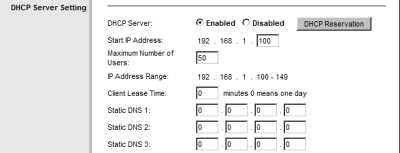Is Google's DNS Service Worth It?
The Domain Name System, or DNS, is the address book of the Internet. Type in a site name such as www.amazon.com, and DNS servers "resolves" that name into an IP address, which is a set of numbers that can get you to the site. On Thursday, Google announced its own DNS service, called Google Public DNS, which it says is part of its initiative to "speed up the Internet."
For most people, DNS is hidden. Routers, DSL and cable modems usually automatically set up the DNS servers used by your home network. You can change this, either by changing the settings on your router, or by changing it on each PC individually, but it's not, as Google itself admits, for the faint of heart.
You will have a primary and secondary DNS server assigned to you, so in order to use those, you have to replace them with Google's DNS servers' IP addresses: 8.8.8.8 and 8.8.4.4. Although Google states its main aim is to speed up the Internet, an added benefit from changing to their DNS servers is that you won't be subjected to a page full of ads if you've mistyped an address.
Google's DNS servers aren't the only "open" ones on the Internet; there's also OpenDNS, whose servers are located at 208.67.222.222 and 208.67.220.220. One good thing about OpenDNS: they have much better instructions than Google's, in terms of changing your DNS servers on your router, even ones specific to a particular OEM. Google's instructions are very generic.

The main question is: is it worth the trouble? For most folks, the answer will be no. For those who want the ultimate in speed, switching your DNS servers away from your ISP may improve your speed, but only marginally, and not if you switch to Google's DNS servers.
PC Magazine's tests for speed showed, in fact, that Google's servers were only marginally faster (in one test) and marginally slower (in a second test) than your ISP's DNS servers might be. In both cases, OpenDNS was marginally faster than either.
In effect, if you want to switch to a DNS server that's not your ISPs, at least for now, if speed is your main goal, than OpenDNS is better than either. Of course, OpenDNS makes its money, for non-premium accounts anyway, by serving ads up on pages with mistyped addresses, soemthing you might find annoying. Of course, since your ISPs DNS servers usually do the same, maybe not.
For most people, DNS is hidden. Routers, DSL and cable modems usually automatically set up the DNS servers used by your home network. You can change this, either by changing the settings on your router, or by changing it on each PC individually, but it's not, as Google itself admits, for the faint of heart.
You will have a primary and secondary DNS server assigned to you, so in order to use those, you have to replace them with Google's DNS servers' IP addresses: 8.8.8.8 and 8.8.4.4. Although Google states its main aim is to speed up the Internet, an added benefit from changing to their DNS servers is that you won't be subjected to a page full of ads if you've mistyped an address.
Google's DNS servers aren't the only "open" ones on the Internet; there's also OpenDNS, whose servers are located at 208.67.222.222 and 208.67.220.220. One good thing about OpenDNS: they have much better instructions than Google's, in terms of changing your DNS servers on your router, even ones specific to a particular OEM. Google's instructions are very generic.

The main question is: is it worth the trouble? For most folks, the answer will be no. For those who want the ultimate in speed, switching your DNS servers away from your ISP may improve your speed, but only marginally, and not if you switch to Google's DNS servers.
PC Magazine's tests for speed showed, in fact, that Google's servers were only marginally faster (in one test) and marginally slower (in a second test) than your ISP's DNS servers might be. In both cases, OpenDNS was marginally faster than either.
In effect, if you want to switch to a DNS server that's not your ISPs, at least for now, if speed is your main goal, than OpenDNS is better than either. Of course, OpenDNS makes its money, for non-premium accounts anyway, by serving ads up on pages with mistyped addresses, soemthing you might find annoying. Of course, since your ISPs DNS servers usually do the same, maybe not.

